Description
Name in North American Boletes: Boletus speciosus var. brunneus
Genus: Butyriboletus
- Genus 2: Boletus
- Genus 3: Xercomus
Species: brunneus
- Species 2: speciosus var. brunneus
Common Name:
Tells: Brown (reddish, yellow, or olive) cap. Yellow pores & pale yellow flesh blue quickly. Well-netted stem yellow above & pink to purple by base. Early season and late season.
Other Information: Likes hemlock. The stem skin bruises easily, and running a finger over the upper part can reveal the yellow-on-yellow netting.
Science Notes: DNA testing moved this mushroom from Boletus to a newly erected genus called “Butyriboletus” (“butyri” being latin for “butter” and this being one of the Butter Boletes).
Edibility: Good.
CHEMICAL TESTS:
- NH4OH (Ammonia): Cap skin turns amber-orange to orange. Cap flesh does not react.
- KOH: Cap skin and flesh both turn amber-orange to orange.
- FeSO4 (Iron Salts): No data.
Links:
 |
0 |  |
306 |  |
160 |  |
181 |

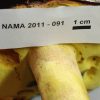
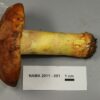
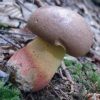
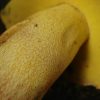
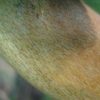
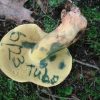
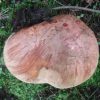
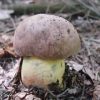
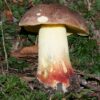
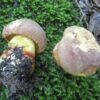
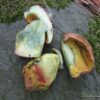
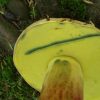
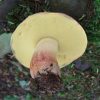
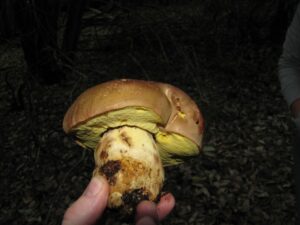
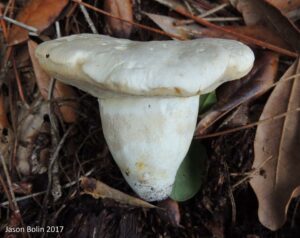
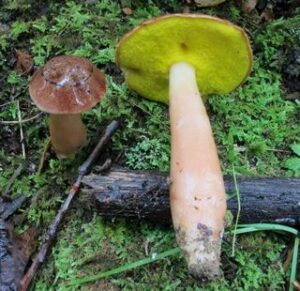
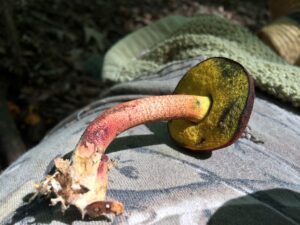
Got something to discuss?